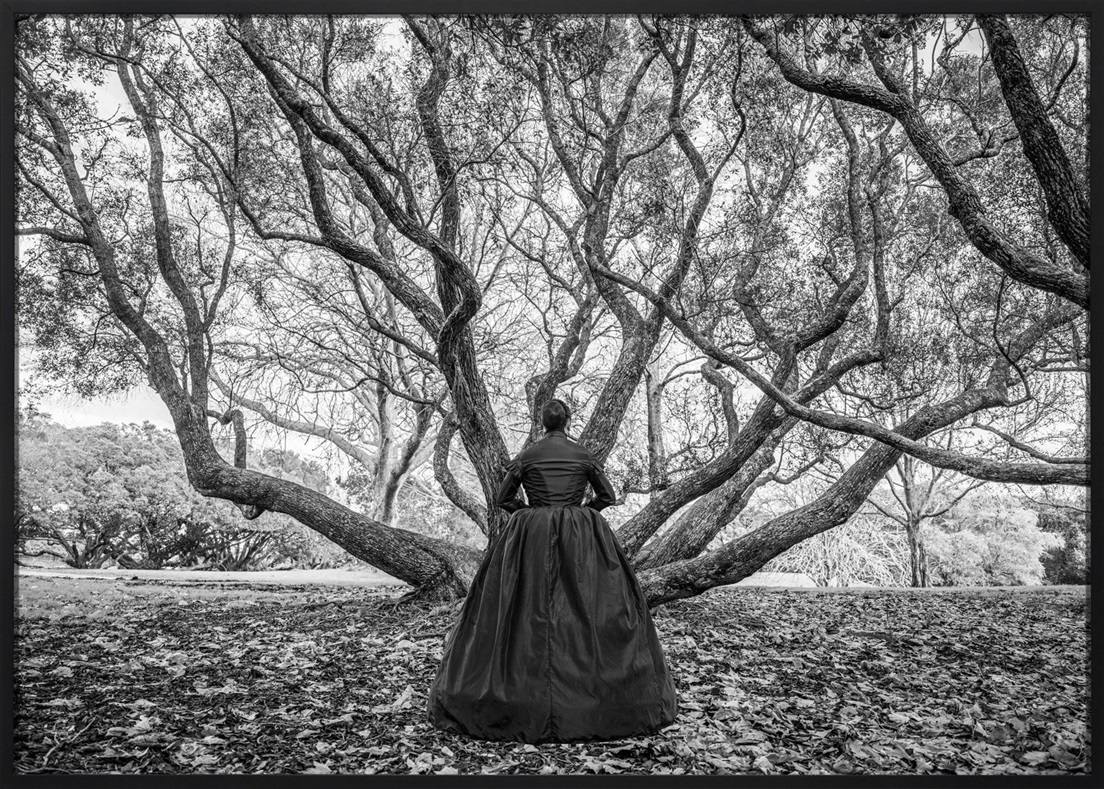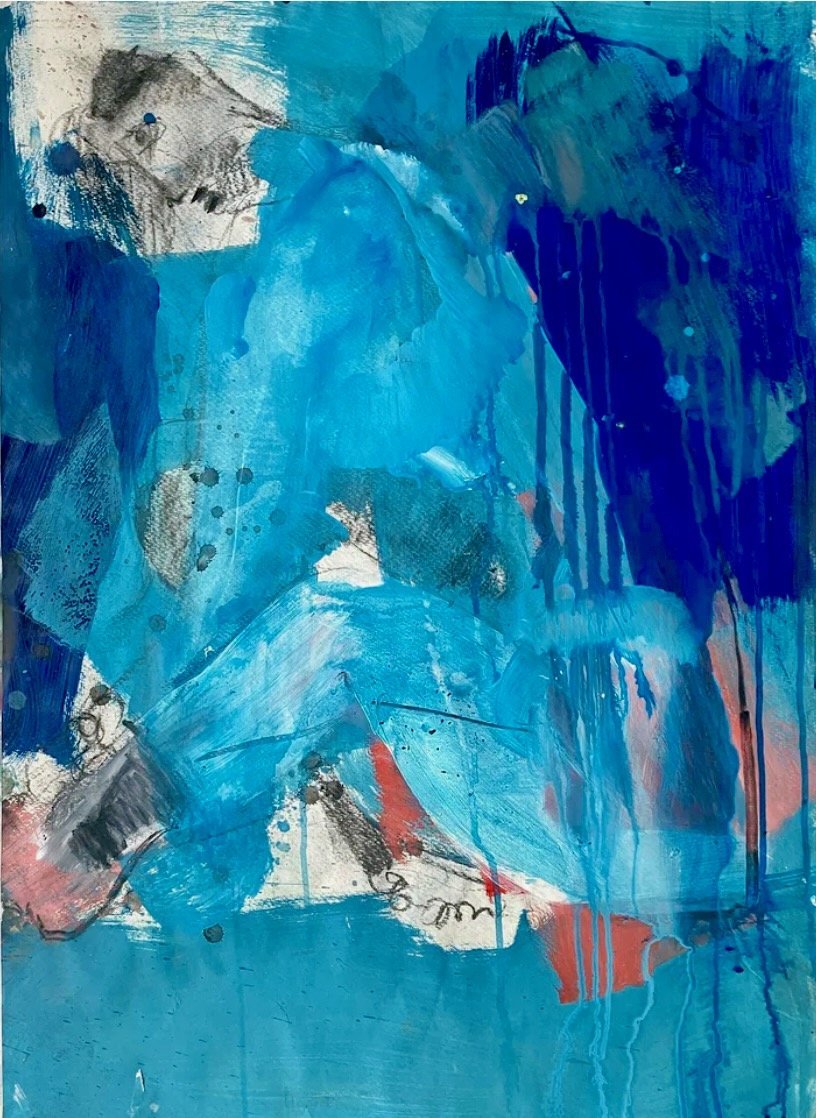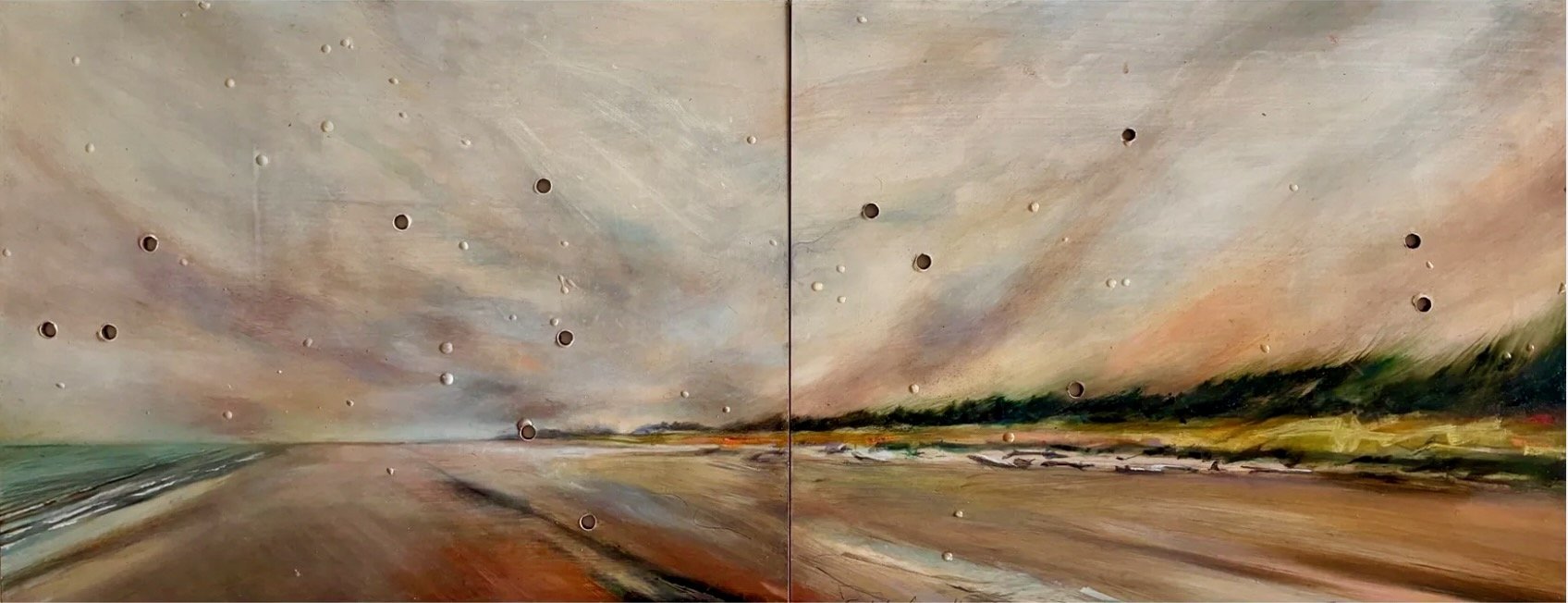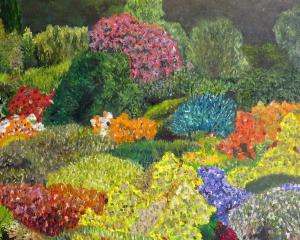
"Selected Works 1966-2012", Ian Scott, and "Moments of Presence", Yuki Kihara
(Milford Galleries, Queenstown)
Two unmissable shows open this Saturday at Queenstown's Milford Galleries. "Selected Works 1966-2012" by Ian Scott traces a path through decades of sometimes divisive artistic exploration, the rise and collision of art movements and epoch-making figures, as well as the enduring impact of the land. Scott’s early Pop Art influences are reflected in 1966’s Untitled, with hints of tourism, wealth, seemingly idyllic nature and suburbia and unspoken stories lingering like pages waiting to be turned. From the iconic Lattice series, there are canvases painted more than thirty years apart, the bold geometric patterns of interlocking lines weaving across generations, playing with depth, perspective, and visual language, creating an infinite tapestry.

Moments passing, yet time frozen, the past and present converging.

(Gallery Thirty Three, Wānaka)
John Oxborough describes his new exhibition as "silent stories and vivid dilemmas that make me laugh" which perfectly encapsulates the humour, puzzles, and intriguing tales that unfold in "Line of Sight". The works veer between curves of charcoal and wandering ink, splashes of acrylics with the translucency and delicacy of watercolours and thick, textural, forceful strokes of oil paint. Faces emerge from abstract lines and shapes, never looking out at the viewer, always preoccupied with their own thoughts and epiphanies, keeping their audience at a slight distance.
The subject of Sitting Looking sits hunched and tense, conveying a palpable sense of overwhelmed despair. The head is sketched, stark, and raw, the body swamped and chased by a surge and deluge of blue tones. In the simply titled Asleep, a prone figure emerges from a few abstract swipes of paint, the suggestion of a curving leg, an arm draped over a mattress edge, embedded with Oxborough’s gift for subtlety and mood-building. A Storm Brewing conveys an effective sense of rising anger and impending combustion, a wash of red spreading through the sketched body, the eyes fixed on a looming cloud of murky blue. In Mind Racing heavy, crisscrossing streaks of paint serve as both the figures hair and a vivid impression of chaos and tumbling thoughts, a mind perhaps hastily painting over something it would prefer to conceal. Amusingly, the figure in An Odd Look appears to be judging all his surrounding companions or perhaps its vice versa.

(Gallery Thirty Three, Wānaka)
Jane Mitchell’s imagery is unfailingly powerful, moving and sometimes a little haunting. Her new collection "Death by a Thousand Cuts" draws the viewer into gorgeous, dreamy landscapes, touched by nostalgia and the sense of revisiting past steps and sights, the infinite tiny moments that shape a life.
With Above and Below and Edges and Memory, Mitchell incorporates sections of vintage wallpaper patterns over the land, linking the natural world with the man-made world, both domestic and commercial. The edges of Edges and Memory drip away into a void, the wallpaper segments layer over one another like pages from a scrapbook and the grandeur and clarity of the landscape emerges from misty grey; the effect is very much that of a seeking mind and perhaps a hurting heart, looking back through rose-coloured glasses at the early chapters of a story that’s since taken unexpected turns.
Mitchell often weathers and marks the surface of her canvases, so that the paintings themselves seem to bear the physical scars of the environment and actions they depict.
It creates a much more immersive experience for the viewer, as if you could reach out a fingertip and touch a drop of rain. The drilled holes in Fatal Land are dramatically impactful, perhaps partially alluding to holes and disparities in our memories, but piercing the moody, deserted beach like a scattering of bullet holes, a stark metaphor for the human impact on the environment, which is not always rosy and gentle.












